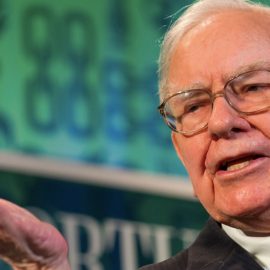

This article is an excerpt from the Shortform summary of "The Case for Christ" by Lee Strobel. Shortform has the world's best summaries of books you should be reading.
Like this article? Sign up for a free trial here .
How did Jesus perform miracles? How many miracles did Jesus perform in the Bible? Can Jesus’s miracles help prove that he existed, and that he was a divine being?
Knowing the answer to the question “how did Jesus perform miracles” is an important question, since it establishes Jesus as a possible son of God, and the eyewitness accounts can help verify his existence.
Keep reading to find out the answer to the question “how did Jesus perform miracles”
How Did Jesus Perform Miracles
The fact that Jesus performed miracles isn’t necessarily a token of his deity—his disciples later performed similar feats without claiming deity for themselves. Rather, it’s how he thought about his miracles that sets them apart. But how did Jesus perform miracles?
For example, when Jesus would perform a miracle, he would situate it in a very specific context: as a sign of the coming of the Kingdom of God. Rather than view himself as simply a worker of miracles, Jesus saw himself as an emissary of God, through which God’s promises would come to pass. In short, he saw himself as transcendent.
Witnesses to the Miracles
If there had been contemporaries of Jesus and his disciples who could challenge or deny the accounts in the gospels, they would have done so: Jesus was a controversial figure whose teachings were seen as heresy by dominant religious authorities of the time, and those authorities would have been more than happy to correct the record. This is part of why the question, “how did Jesus perform miracles” is important.”
Interestingly, the contemporaneous challenges to the gospels never question Jesus’s power or ability to work miracles—rather, they portray Jesus as a magician whose gifts derived from some other source than God. In other words, they implicitly acknowledge the factuality of Jesus’s divinity by admitting his ability to work miracles. They had to concede Jesus’s supernatural abilities—too many of the writers’ contemporaries had witnessed Jesus’s miracles themselves.
Jesus as One Among Many
Members of the Jesus Seminar have sought to emphasize Jesus’s “naturalism” by placing his pronouncements and deeds in historical context—by showing that rabbis and other Jewish figures were purported to have performed miracles as well. If other religious leaders of the time were perceived as having supernatural powers—powers no one now believes in or takes seriously—then it stands to reason Jesus’s powers should be treated similarly: as myth. So, how did Jesus perform miracles, and why does it matter?
However, the parallels between Jesus and other “wonder workers” of the time don’t go very far. Boyd notes three ways in which Jesus is unique:
- No other religious leader was so closely associated with the supernatural.
- No other religious leader performed miracles of Jesus’s caliber (whereas rabbis were known to bring rain by praying for it, no rabbi was known to have cured permanent illnesses or raised the dead).
- No other religious leader performed miracles on his own authority (whereas rabbis would pray for God to perform a certain miracle, Jesus assumed that authority himself as God himself).
The Case of Apollonius
Skeptics have often noted the parallels between Apollonius of Tyana, a historical figure active in the first century AD, and Jesus: both healed the sick, performed exorcisms, and raised the dead; and both were allegedly seen by their followers after they died. However, Apollonius’s feats are dismissed as legend whereas Jesus’s are accepted as fact. Why, a skeptic might ask, do we not worship Apollonius? Or, vice versa, dismiss Jesus?
There are numerous problems with this line of argument:
- First, our only source for Apollonius’s supernatural abilities is a single biography written a century and a half after Apollonius’s death. (Compare this with Jesus’s biographies, which were written as little as thirty years after his death and are corroborated by numerous secular historians (see Chapter 4)).
- Second, Apollonius’s biography was commissioned by an empress who worshipped Apollonius and planned to dedicate a temple to him. Thus the biographer would have incentive to embellish Apollonius’s story.
- Third, whereas the gospels present the facts of Jesus’s life with the definiteness of an eyewitness account, Apollonius’s biography features sentences that indicate much of the story is hearsay.
- Fourth and finally, when Apollonius’s biographer was writing in the third century, Christianity had already long been in existence. Thus it’s more likely that the story of Apollonius was influenced by the story of Jesus than vice versa.
How Did Jesus Perform Miracles? The View of Jesus’s Contemporaries
Of course, our understanding of Jesus is based exclusively on the biblical and historical evidence, including the question “how many miracles did Jesus perform in the Bible?” It’s a fact that many of Jesus’s contemporaries believed he was crazy. For example, in John 20:20, we read that the Jews of the time believed Jesus was possessed by a demon and “raving mad.”
Although Jesus’s countrymen did indeed question his sanity, their suspicion was prompted by Jesus’s uniqueness, not any evidence of mental disturbance. (In other words, they called him “insane” because his teachings were so unfamiliar.) And, unlike a paranoid schizophrenic with delusions of grandeur, Jesus established his divinity through specific acts: for example, healing the sick or bringing the dead back to life. In the Bible, Jesus performs many miracles, answering the question “how many miracles did Jesus perform in the Bible?”
(Skeptics have charged that Jesus’s “miracles” are likely less impressive than they seem. For example, many conditions in the ancient world were psychosomatic—that is, imagined—and so Jesus’s ability to heal was tantamount to the placebo effect: Because people believed Jesus was a healer, they simply willed themselves better once he administered to them.
The problem with this argument is that death is not a psychosomatic condition, yet Jesus was nevertheless able to bring the deceased back to life.)
So how did Jesus perform miracles? While that question is up for debate, it’s an important question while trying to establish Jesus as the son of God.

———End of Preview———
Like what you just read? Read the rest of the world's best summary of Lee Strobel's "The Case for Christ" at Shortform .
Here's what you'll find in our full The Case for Christ summary :
- How an atheist lawyer-journalist researched Christ and began believing
- The key arguments against the existence of Christ, and why they don't hold up
- How to make up your own mind about whether Christ existed






